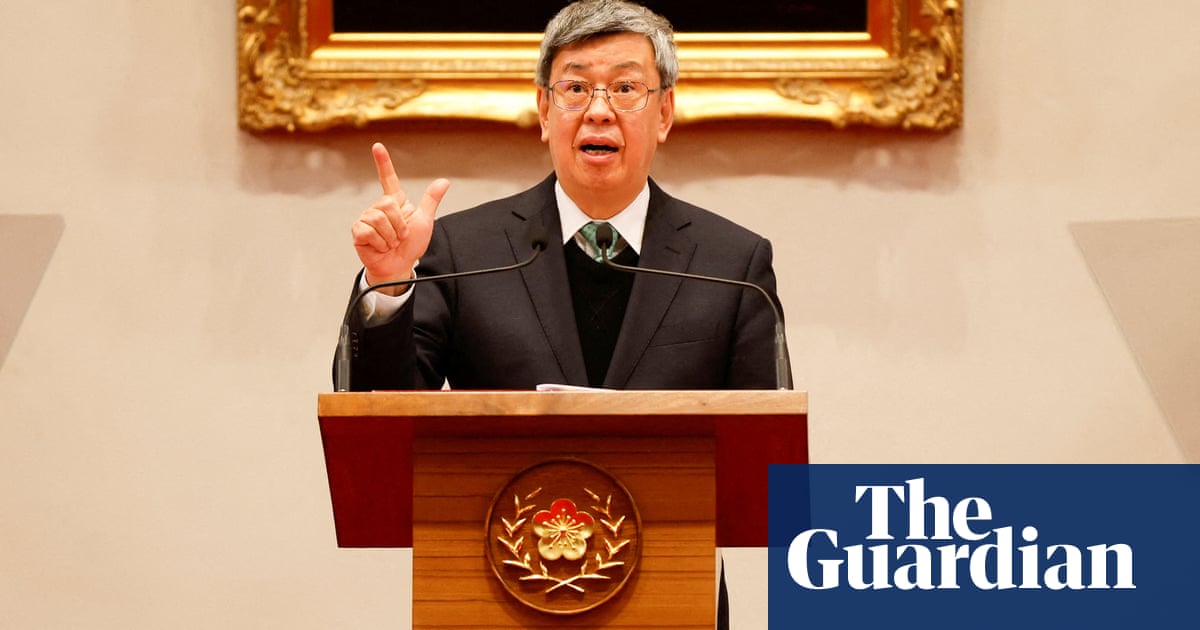Next week, 135 cardinals will gather inside the Vatican for the conclave, a secretive meeting to decide who will succeed the latePope Francis. Around the world, people are speculating: who will the next pontiff be? But in Taiwan, a more common discussion has been: who are we sending to the inauguration?
Former vice-president Chen Chien-jen recently returned fromVaticanCity, where he represented Taiwan at Francis’s funeral. But the committed Catholic hopes he won’t be asked to repeat the journey to welcome in the successor. Instead, he’s pushing for it to be Taiwan’s president, Lai Ching-te.
“We prayed for the possibility for Dr Lai to attend the inauguration of the new pope,” he told the Guardian in Taipei.
The reasonLai didn’t attend the funeralhasn’t been confirmed, but there are plenty of educated guesses going around, and they all involve Beijing. The Vatican is one of just 12 governments that recognise Taiwan as a country, and the only one in Europe. Serving presidents attended the funeral of Pope John II and the first mass of Pope Francis. But in the years since, the geopolitics of Taiwan’s place in the world has become more difficult.
China’s ruling Communist Pparty claimsTaiwanis a province and has vowed to annex it, militarily if need be. In the meantime it is using its considerable global influence to keep Taiwan’s government – which it labels “separatist” – away from the international stage, and has persuaded many of Taiwan’s allies to cut ties and recognise Beijing instead. Which is exactly what many observers think was going on with the Vatican for the funeral.
After the death of Francis was announced, Taiwan was quick to offer condolences. Its deputy foreign minister, Wu Chih-chung, publicly said it was the island’s “most important aim” to have its president lead the funeral delegation. But just hours later Chen, who had met Francis six times before he died and was a member of the Pontifical Academy of Sciences, was announced as “the best choice under the current circumstances” following discussions with the Vatican.
Speculation swirled that the Vatican had refused Lai’s attendance – or at least requested he not be sent – under pressure fromChina. Taipei, Beijing and the Vatican would not comment.
Beijing was relatively late in offering condolences, which came via a foreign affairs spokesperson answering a question at a press conference in which he also insisted Taiwan was an “inalienable part” of China. It also didn’t send anyone to the funeral, fueling speculation that it was because the Vatican refused to bar Taiwan’s delegation.
“We knew [the funeral] would be a headache, we knew China would ask that Taiwan’s delegation not be allowed to come, and we knew the Vatican could not say no but also could not refuse Taiwan as a diplomatic partners and because there are Catholics in Taiwan,” said Michel Chambon, a research fellow at the National University of Singapore.
Taiwan’s presence at these sort of events isn’t only about respecting an important moment for a close ally. It’s also a rare opportunity to mix with other world leaders at a time when Taiwan is seeking as much global support as it can to deter China’s aggression.
Chen isn’t sure how many foreign leaders and dignitaries he spoke to at the funeral but it was many. “In the square I had the chance to meet, for example, President Biden of the US and also the special envoys from Japan, Thailand, South Korea, too many to mention. It was a good chance for us to chat with governmental officers of likeminded countries,” he told the Guardian. “With all of our friends we have the same mindset and we all treasure regional stability, security and prosperity,” Chen said. “And we hope we can maintain this Indo-Pacific’s freedom and openness.”
From the Vatican’s side, Taiwan is an important partner of the church, even though it is home to just 0.02% of the world’s Catholics. “It’s a bridging church,” said Chen. Until about a decade ago, after cross-strait tensions made it too risky, Chinese priests and nuns would quietly travel to Taiwan’s seminaries and universities for theological training in their native tongue.
Francis put greater focus on Chinese-speaking Catholics across Asia. His funeral sermon ended with a prayer in Mandarin – the only one in delivered in an Asian language. There are an estimated 12 million Catholics in China and Francis oversaw significant progress in negotiations with Beijing to better protect their religious freedoms, signing agreements on the appointment of bishops.
“We don’t know if the new pope will love China as Francis did,” said Thomas Tu, a Vatican diplomacy expert at Taiwan’s National Chengchi University. “But I think the Vatican wants to keep that legacy.”
Whether that legacy comes at the expense of Taiwan’s diplomatic status is up for debate. Chen understands that it’s complicated: “The Holy See has to get assurances of religious freedom [from Beijing] to protect all the sheep in China, as a big shepherd. It’s a big pressure.”
Chambon said Francis successfully balanced both relationships, strengthening ties with China without diminishing anything with Taiwan. “The Holy See does not want to abandon any group of Catholics in the world, including Taiwan,” he said. “It’s been able to manoeuvre and resist pressure from Beijing to cut official ties.”
Taiwan’s government says it is still making plans about its delegation and has not said whether or not it hopes it is led by Lai. Chambon thinks the Vatican probably hopes Chen returns instead.
He added: “The Vatican doesn’t want to refuse Taiwan completely … I think they would like to see something like the funeral – we want a delegation but we don’t want provocation towards Beijing.”
Additional research by Jason Tzu Kuan Lu
